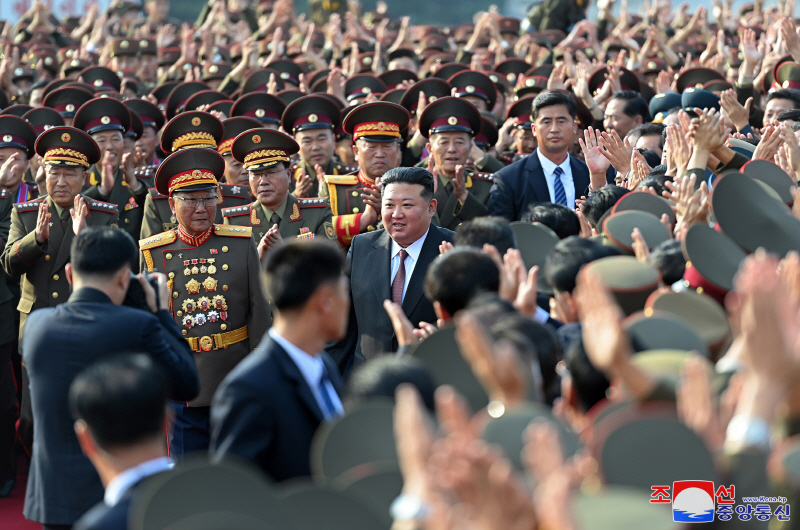Signs indicate that North Korean troops deployed to Russia may soon engage in combat in the Kursk region, currently occupied by Ukrainian forces. Amid these developments, North Korea and Russia have ratified a treaty elevating their bilateral relations to a military alliance.
Analysts suggest both nations may exploit the leadership transition in the United States to pursue short-term objectives in the Ukraine conflict.
On October 12, North Korea’s state-run Rodong Sinmun reported that the “Treaty on Comprehensive Strategic Partnership between the Democratic People’s Republic of Korea and the Russian Federation,” signed in Pyongyang on June 19, received official ratification by its leader Kim Jong-un.

Russian President Vladimir Putin had signed the treaty on November 9, which specifies that it takes effect indefinitely from the day of the document exchange. With battle preparations in Kursk, an expedited exchange of ratification documents is anticipated.
A South Korean Ministry of Unification official noted, “We are closely observing whether North Korea and Russia will formally link this treaty to North Korea’s military deployment following document exchange.” This treaty appears to reinstate an automatic military intervention clause, potentially legitimizing North Korean involvement.
Article 4 of the treaty stipulates mutual military support: if one nation faces military aggression, the other will provide “all means in its possession” to offer military and other forms of aid, in line with the UN Charter and national laws.
Ukrainian President Volodymyr Zelensky posted on social media that Ukrainian forces are facing approximately 50,000 Russian troops in Kursk, lending support to theories that the treaty aims to provide North Korea’s deployment with a legal basis before active combat begins.
The background to this aggressive joint approach by North Korea and Russia is the ongoing U.S. administration transition. With President-elect Donald Trump expected to bring shifts to foreign policy, both nations appear to be seizing this transitional period.
Experts predict that this cooperative push by North Korea and Russia could continue over the next few months. Oh Kyung-sup, a research fellow at the Korea Institute for National Unification, described this as a “69-day gamble” to secure advantageous positions before Trump’s official inauguration on January 20.
Given Trump’s stated openness to negotiating with Russia based on “current borders,” Putin may be aiming to gain a stronger territorial position before any potential peace negotiations.
Kim Jong-un likely sees this as an opportunity to strengthen ties with Russia, potentially gaining advanced military technologies and crucial financial resources through weapons exports and troop deployments.
Concern is rising in South Korea over the long-term implications of this treaty, with officials noting that the alliance could serve as a basis for continued military cooperation between North Korea and Russia, even after the Ukraine conflict. Recently, Putin mentioned the possibility of joint military training with North Korea, signaling that the treaty covers far more than military cooperation alone, including fields such as science, technology, trade, and energy.
South Korean President Yoon Suk Yeol, during an emergency security meeting last month, pledged to mobilize “all available means” in response to North Korea’s deployment to Russia and vowed phased countermeasures against further North Korea-Russia military collaboration.
However, South Korea faces limited options for immediate response, especially as Trump’s Ukraine policy remains uncertain. Experts advise that South Korea should align its approach with international responses rather than acting independently.
There is also speculation that Kim Jong-un may take provocative actions to prioritize the North Korean nuclear issue in the upcoming Trump administration. Analysts warn of the possibility of a seventh nuclear test or an intercontinental ballistic missile (ICBM) launch targeting the U.S. mainland.
BY YEONGGYO CHUNG, YOUNGNAM KIM [kim.youngnam@koreadaily.com]



